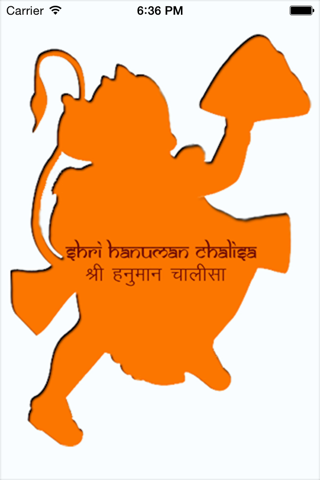
Prayer Hanuman Chalisa Play and Read Free app for iPhone and iPad
Developer: Gautam Sareriya
First release : 12 Nov 2014
App size: 14.02 Mb
The Hanuman Chalisa is a Hindu devotional hymn (stotra) addressed to Hanuman.
It is traditionally believed to have been authored by 16th-century poet Tulsidas in the Awadhi language, and is his best known text apart from the Ramcharitmanas.
The word "chālīsā" is derived from "chālīs", which means the number forty in Hindi, as the Hanuman Chalisa has 40 verses (excluding the couplets at the beginning and at the end).
The authorship of the Hanuman Chalisa is attributed to Tulsidas, a poet-saint who lived in the 16th century CE.
He says in the last stanza of the Chalisa that whoever chants it with full devotion to Hanuman, will have Hanumans grace.
Amongst the Hindus of Northern India, it is a very popular belief that chanting the Hanuman Chalisa invokes Hanumans divine intervention in grave problems, including those concerning evil spirits.



